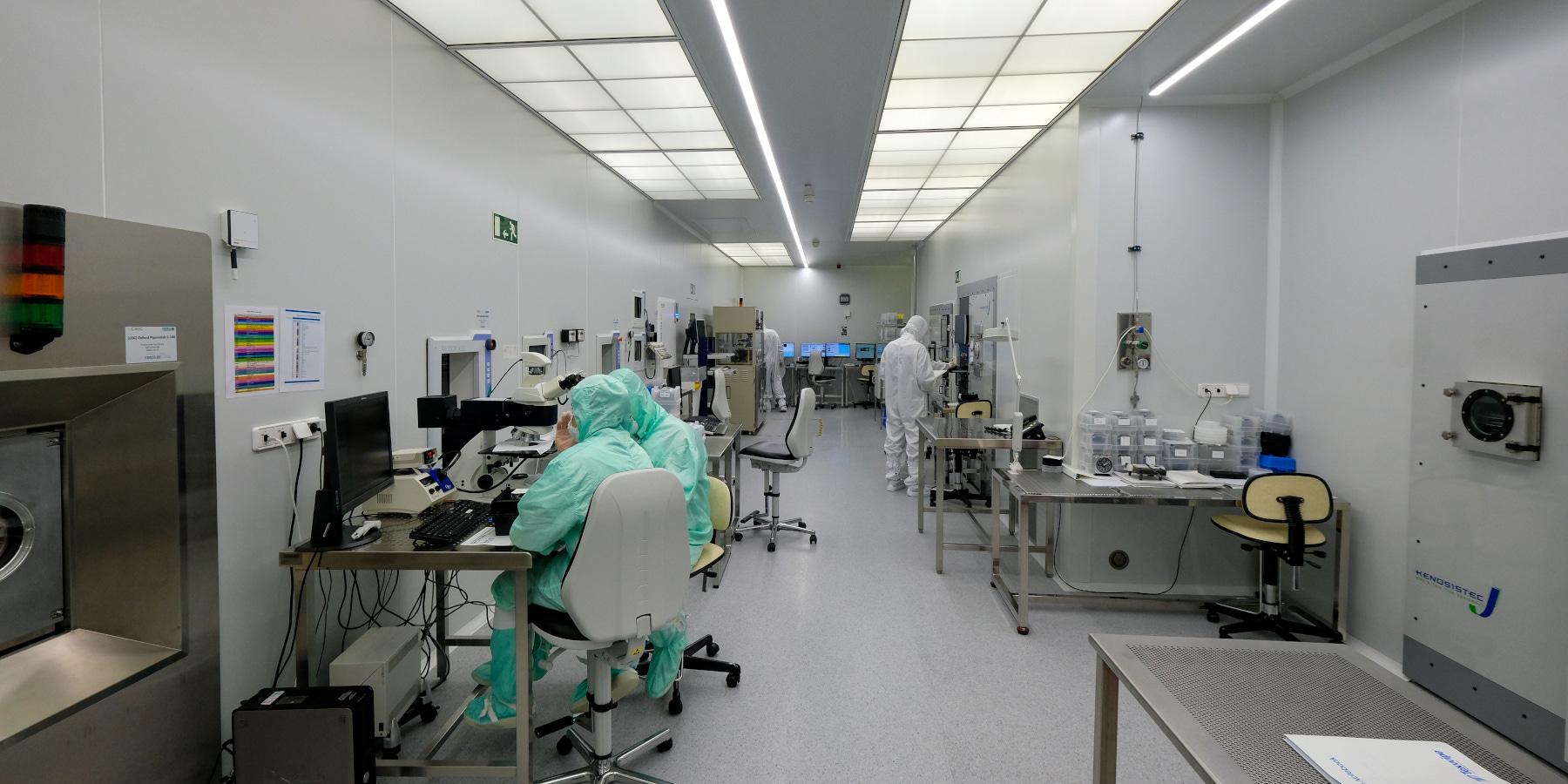The CSIC collaborates in the first European platform for open access to unique research infrastructures in nanoscience
NFFA-Europe began in 2015 as a project funded by Horizon 2020 and is now materializing as a pilot platform for free and open access to large nanoscience research infrastructures with 22 European collaborators. The platform has just published a memorandum of understanding to explore the future sustainability of the initiative. The IMB-CNM-CSIC, the ICMAB-CSIC and the ICMM-CSIC are the CSIC centers that make up the consortium.

NFFA-Europe is a research infrastructure that offers researchers and companies advanced services for nanoscience research, based on the resources of the European laboratories and research centers that make up the consortium. NFFA (acronym for Nano Foundries & Fine Analysis) brings together laboratories with nanoscale capabilities and large infrastructures for the fine analysis of matter (neutron sources and synchrotron light laboratories). To the date, it has a total of 22 collaborators from 11 European countries with the participation of the CSIC.
The platform offers a unique and multidisciplinary catalog with the techniques and equipment of its members to carry out public nanoscience projects. A free and open access exercise to generate a great European infrastructure. NFFA-Europe started in 2015 under Horizon 2020 and, from 2021, continues through the NFFA-Europe Pilot project. Research staff, research centers and industry can request access to all its services.
The available techniques include nanocharacterization in its broadest sense, numerical simulation, advanced techniques for lithography or the synthesis of materials. The catalog has six major areas and the CSIC leads, collaborates or provides services in each of them.
The Institute of Microelectronics of Barcelona (IMB-CNM-CSIC) leads the "Nano to Micro/Macro" area, which includes aspects of microfabrication, photolithography or inkjet technologies. In this way, the IMB-CNM integrates its Micro and Nanofabrication Clean Room (a Unique Scientific and Technical Infrastructure) into the platform. The experience of more than 30 years of administration of the largest Clean Room in Spain means that the IMB-CNM also contributes to the management of this research infrastructure project.
"NFFA's ambition has always been to extend the philosophy of open and transnational access to the field of nanoscience and nanotechnology in such a way that by federating the skills and 'excess' capacity of reference centers in this field, it is offered to any researcher with The possibility of exploring it is a good idea. In particular, and as IMB-CNM, we provide capabilities aimed at micro and nanoelectronics", explains Luis Fonseca, principal investigator of the IMB-CNM's contribution to the initiative and current director of the institute .
The Institute of Materials Science of Barcelona (ICMAB-CSIC) leads the "Growth and Synthesis" area, which manages physical and chemical layer deposition and synthesis of nanoparticles or softmatter, among others.
"ICMAB's scientific and technical services have a long tradition in the preparation and structural, physical and chemical characterisation of functional nanomaterials. ICMAB's recognition as a Severo Ochoa centre of excellence and its intense collaboration with the ALBA synchrotron has greatly boosted its internationalisation, and therefore participation in NFFA is an additional stimulus of great impact," says Xavier Obradors, principal investigator of the ICMAB contribution and director of the institute.
For its part, the Institute of Materials Science of Madrid (ICMM-CSIC) provides services in the area of "Synthesis and characterisation" by offering the use of equipment that enables the controlled growth of nanoparticles on an arbitrary surface.
"This instrument allows a high degree of control over the purity, size and chemical composition of the nanoparticles produced, while enabling their characterisation by various surface techniques," says José Ángel Martin Gago, principal investigator of the ICMM contribution.
Sustainability beyond European funds
The project, under the new form NFFA-Europe Pilot (NEP), aims to explore economic viability beyond the European public funding framework. To this end, its partners have just signed a Memorandum of Understanding (MOU) establishing a roadmap to generate complementary activities and work on long-term international cooperation.
Participation of other centers in Spain
Apart from the three research institutes from CSIC, other Spanish research centres on the list of service providers are the Institut Català de Nanociència i Nanotecnologia (ICN2, with CSIC participation) and the Universitat Autònoma de Barcelona (UAB). ALBA Synchrotron, the Institut de Recerca en Energia de Catalunya (IREC) and CICbioMAGUNE also contribute to this initiative as third parties of the CSIC.
IMB-CNM / ICMAB / CSIC




